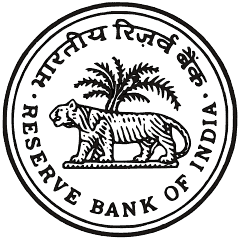South Korea, known for its impressive economic achievements and technological advancements, continues to play a significant role in the world of cryptocurrencies. As a G-20 major economy and one of the “Asian Tigers,” South Korea has made remarkable progress in industries like electronics and vehicles, with prominent companies like Samsung involved in Bitcoin mining chip production. The country is also home to cutting-edge cities like Seoul, the capital.
Cryptocurrency adoption has flourished in South Korea, driven by its high internet penetration and financial sophistication. Interestingly, South Korea entered the crypto boom relatively late compared to the US, Europe, and China, with a significant surge in Bitcoin adoption occurring around 2014. By 2020, South Korea ranked 17th globally in terms of crypto adoption out of 154 countries.
In 2018, South Korea boasted one of the largest cryptocurrency markets worldwide, ranking closely behind the United States and Japan, despite having a population only a fraction of their size. This can be attributed to the active participation of one-third of all salaried workers in crypto trading and investment, with Bitcoin being the preferred choice for many.
However, during the 2018 bear market, the South Korean Bitcoin community faced additional challenges due to stringent government regulations. The authorities took significant actions to regulate cryptocurrency trading, particularly Initial Coin Offerings (ICOs), which remain banned as of 2023. Nevertheless, there are indications that the government is gradually easing its restrictions, signaling a more measured approach to the blockchain revolution in Korea.
Understanding Government Regulations
In the past, South Korean banks provided anonymous “virtual bank accounts” for funding crypto exchange accounts, facilitating seamless transactions for users. However, this practice has been prohibited, and now only named bank accounts can be used for crypto trading.
The exponential growth of the South Korean crypto market attracted the attention of the government, especially after reports of North Korean hackers targeting crypto exchanges in South Korea and Japan. These incidents raised concerns, prompting the government to scrutinize the industry. Amidst rumors of a potential ban, following China’s crackdown on exchanges, South Korea emerged as a replacement market for Chinese demand.
In September 2017, the government banned ICOs, and a few months later, an insider trading scandal involving Financial Supervisory Service staffers further fueled regulatory discussions. In 2018, bills were drafted to introduce crypto regulations aimed at preventing cybercrimes and money laundering. However, exchange failures, fraud, and cyber attacks continued to drive the need for stringent regulation. To safeguard against privacy concerns, a permit system for crypto exchanges was introduced in 2020, requiring verified identities for customer bank accounts involved in crypto trading. Despite these measures, the Bitcoin scene in Korea remains resilient.
Government Perspective and Future Developments
While the government remains concerned about the security and financial risks associated with crypto, the Bank of Korea remains unphased. The central bank reported that the approximately 2 trillion Won (around $18 billion USD) invested in the local crypto industry poses no significant threat to the 26 trillion Won deposits in the country’s brokerage houses. Furthermore, in 2020, the Bank of Korea announced plans to conduct a controlled trial of its own digital currency issuance in 2021.
As South Korea seeks a suitable regulatory framework, both businesses and state-owned corporations are embracing blockchain technology. Notably, the KT Corporation, the country’s largest telephone company, plans to incorporate blockchain into its network to enhance security and transparency. Additionally, organizations like SK Telecom, the Korea Housing Finance Corporation, and the Korea Internet & Security Agency are implementing blockchain solutions for various purposes, such as government document storage and proposal evaluation systems. These initiatives demonstrate the government’s intent to embrace and harness the potential of blockchain technology.
Future Taxation and Bitcoin in Korea
In January 2021, South Korea announced its intention to impose a 20% tax rate on all profits derived from crypto trading. This tax regime, which has been in the works for several years, is expected to be introduced in 2023. It is crucial for traders to prepare accordingly and ensure compliance with the upcoming tax regulations.
Official South Korean Blockchain Adoption
South Korea’s commitment to embracing blockchain technology is evident in various sectors. The country’s largest telephone company, KT Corporation, plans to launch its blockchain-powered network, adding an extra layer of security and transparency to its existing infrastructure. Similarly, SK Telecom introduced its blockchain-based system for storing government certificates in October 2020, showcasing the potential of blockchain in enhancing administrative processes.
Additionally, the Korea Housing Finance Corporation and the Korea Internet & Security Agency have joined forces to develop a blockchain-based document storage system. This innovative solution will manage mortgage and loan-related documents while prioritizing customer data protection and improving overall efficiency.
Moreover, the administrative district of Yeongdeungpo-gu has implemented a Proposal Evaluation System built on blockchain technology. This system aims to enhance the security and integrity of administrative work, accelerate the review process, and provide more reliable results.
These initiatives highlight the South Korean government’s efforts to foster blockchain innovation and indicate a desire to harness the technology’s benefits.
Conclusion
South Korea has implemented relatively strict regulations regarding cryptocurrencies, driven by the need to mitigate risks and protect investors. While these regulations may pose challenges for crypto enthusiasts, they reflect a responsible approach to ensure the stability and security of the market.
As a technologically advanced nation, South Korea continues to provide a conducive environment for the development and adoption of new technologies like cryptocurrency. Despite the regulatory landscape, Bitcoin and other cryptocurrencies remain popular among South Koreans. If you are looking to buy Bitcoin in Korea, reputable platforms like Coinmama are available to assist you in navigating the process securely and responsibly.




